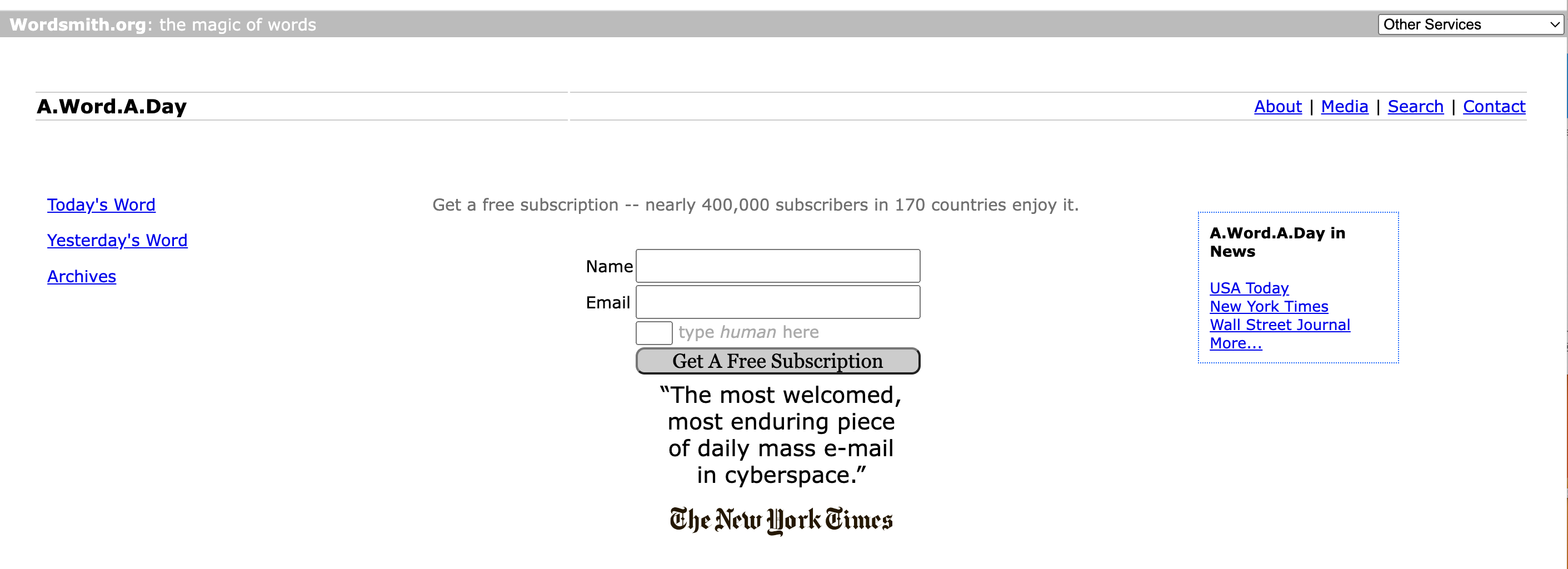The image above might not look super interesting, but it's a link to an email subscription I recommend highly because I always find it fascinating. One of my former students (Hi, AR!) shared it with me, and I'm grateful to him every day for the suggestion. Way back in late-July and early-August, the A.Word.A Day weekly theme was lesser-known counterparts. (The site's author Garg offered the words benignant, forgettery, endarken, penultimatum, and presenteeism, none of which I had known before that week. Also, while I'm speaking parenthetically here, if you do sign up for the daily emails, make sure to read the "A Thought for Today" section at each missive's bottom. The author provides wonderful brain fodder.)
The same week as Anu Garg presented the five unusual opposites to relatively common words, I was reading Ross Gay's Inciting Joy, in which I came across the word disprivilege. In the note, Gay explains that "a slant analogue is in the difference between the word slave, which implies a natural condition, and enslaved, which implicates the enslavers"(35).
I fancy myself as a person who's always curious about and interested in language. During that week in particular, messages about thinking of the flip sides of words were coming at me from every direction.
I'm going to veer off-course somewhat here to share an observation that may seem harsh. Sometimes, when I'm working with a struggling student on crafting an essay or when a student is trying unsuccessfully to get an idea across in class, the child will say something along the lines of, "I know what I want to say, but I can't think of the words." At that moment, I try hard not to let my thought, which is "you don't know -- if you had the words, you'd have the thought" cross my face. In fact, despite how frequently students claim otherwise, I believe we can think more complexly when we use more nuanced vocabulary. If we understand something, we can express it.
All this to say, I'm a big fan of learning new words, even if I usually forget and have to relearn them. In particular, I like the idea that Ross's note implies. Using "not" before a word is not the same as using the word's opposite. The more we can use our language to capture the nuances of our realities, the more likely it is that we can help others to understand us. And that's what it's all about, right?
What thoughts do you have about using words' opposites? Can you share any relevant examples?

Nice job, Carita!
I am absolutely on your side about only knowing something if you have words for it; it was a heated discussion I remember having in the fall of 1957 when I was living at what was not yet my alma mater nor yours!
Someday, I’d like to hear this full story.
I love to play that opposite-word game. There are so many possibilities and they can be very funny. Besides the usual ept and gruntled, there are turbed and membered. It’s a very long list and might be fun to drop into a conversation. Some are non-words and some are in the dictionary (or thinktionary)
Yes, those non-words are funny. I also like thinking about how there are multiple opposites of many words. For example, is the opposite of “crowded” “empty” or “isolated” or “peaceful”? They all work but mean different things.
Yes, words help precise thought, and visa versa.
And, what of Temple Grandin (Visual Thinking; The Way I See It; Different Not Less; etc)
and those people who apparently think in pictures.
Oh, I hadn’t thought about those people. I wonder if they could express their ideas clearly in images.